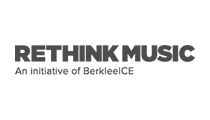This website uses cookies so that we can provide you with the best user experience possible. Cookie information is stored in your browser and performs functions such as recognising you when you return to our website and helping our team to understand which sections of the website you find most interesting and useful.
Business News Digital Labels & Publishers
Berklee report bigs up the blockchain as a royalty processing solution
By Chris Cooke | Published on Wednesday 15 July 2015

Ah, blockchains. Everyone keeps talking to me about “the blockchain”.
Just the other day, I walked into my local Pret at 7.10am, and this guy I know was in there, and he introduced me to this guy he knew, and immediately it was like, “We’re talking about the blockchain!” I mean, I’d only gone in there to buy some porridge, and now this.
So I said, “Ah, the blockchain, people keep telling me that’s how we’re going to sort out music royalty reporting issues”. And boy did he look impressed with me. So, I picked up my pot of porridge and sidled out the door. I couldn’t help thinking whatever I said next, it wasn’t going to top what I’d just said about blockchains and music royalties and shit.
So, yes, people keep telling me that blockchains are how we’re going to sort out music royalty reporting issues. And now Berklee College Of Music is telling me that blockchains are how we’re going to sort out music royalty reporting issues, via its Rethink Music initiative and its new previously reported (and welcomed by the FAC) report on digital royalty issues.
In case you wondered, blockchain technologies power cryptocurrencies like Bitcoin, and an increasing number of people (and start-ups) reckon that the same technology could be a way to create an efficient and totally transparent way to communicate copyright ownership and royalty payments in the digital music domain.
Having noted the complexities and problems around copyright ownership and royalty reporting and distribution in the digital age, the Berklee report says: “We encourage the investigation of the use of emerging crypto-currencies, such as Bitcoin, and their underlying
technology, Blockchain, as new royalty-distribution mechanisms for the music industry”.
After noting how the Bitcoin system works, it says that, by applying the same technology to music rights, “each time a payment is generated for a given work, the money would be automatically split according to the set terms, and each party’s account would instantly reflect the additional revenue”.
Of course, while the technology is there and may well be adaptable for the music industry’s needs, all of this would require a central database of music rights ownership information, which is top of the music industry’s list of ‘things everyone agrees there needs to be but nobody is doing much about getting done’, especially since the music publishing sector abandoned its Global Repertoire Database project.
Though some collecting societies are starting to merge their databases – PRS, GEMA and STIM in particular – while on the other side of the fence some digital service providers are starting to build decent databases of copyright information, in particular the big bad Google. And some reckon that the merging of various databases around the world is a more realistic approach to getting some kind of global repertoire list, rather than everyone signing up to a big new industry-wide data pool.
Though that isn’t going to happen overnight, and even then there is the issue of the music industry making all that data public domain. But nevertheless, if planet tech can truly demonstrate the savings a blockchain-based royalty payments system can deliver long term, perhaps that will provide some incentive to get database building, merging and sharing. We can only hope.
You can download the Rethink Music report here.





